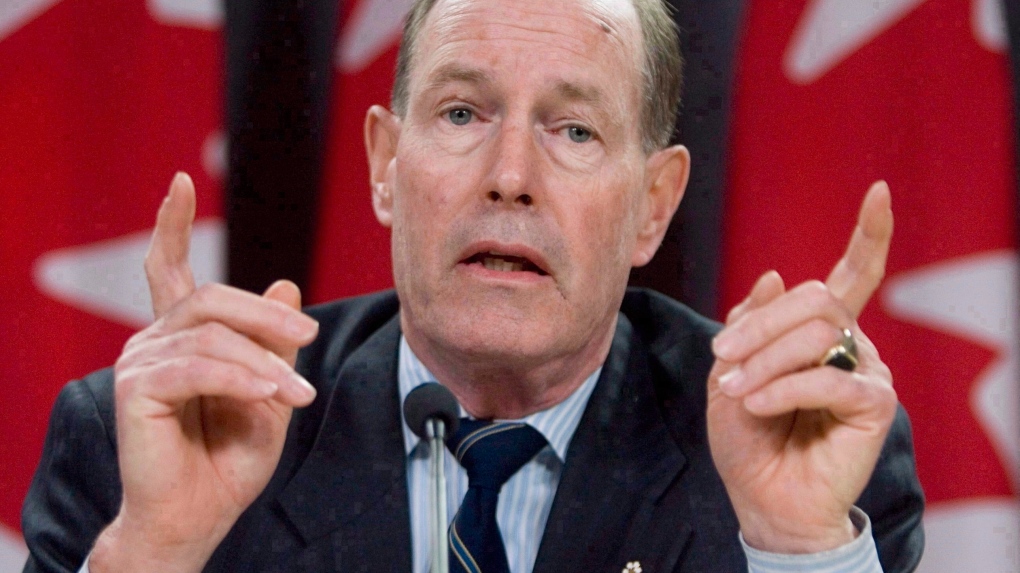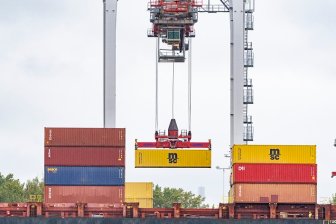News
Chinese cyber espionage operation targeted Canadian Uyghurs, says Facebook – CBC.ca


Members of Canada’s Uyghur community have been targeted by a sophisticated cyber espionage campaign that has been trying to infect devices with malware to permit surveillance, Facebook said today.
Facebook said the campaign used its platform to target hundreds of Uyghur activists, journalists and dissidents in several countries with posts designed to take them to other websites harbouring malware. The company said it cannot tell how many people were tricked into clicking on links that infected their mobile phones or computers.
Facebook Canada said it will notify “fewer than 20” people in Canada who were targeted.
The company said it traced the malware used by the hackers — known as Earth Empusa or Evil Eye — to two companies in China. Facebook said it was not able to determine whether the Chinese government was involved.
“This group used various cyber espionage tactics to identify its targets and infect their devices with malware to enable surveillance,” wrote Mike Dvilyanski — head of cyber espionage investigations for Facebook — and the company’s head of security policy Nathaniel Gleicher in a media statement.
“This activity had the hallmarks of a well resourced and persistent operation, while obfuscating who’s behind it.”
Facebook said the operation targeted Uyghurs from China’s Xinjiang province living in Canada, the United States, Turkey, Kazakhstan, Syria, Australia and other countries.
Fake accounts, fake sites
Facebook said the operation used a variety of techniques to reach the people they were targeting. The company said the hackers set up Facebook accounts where they posed as “journalists, students, human rights advocates or members of the Uyghur community to build trust with people they targeted and trick them into clicking on malicious links.”
They also set up malicious websites that looked like popular Uyghur or Turkish news sites and launched “watering hole attacks” to infect visitors to legitimate websites, Facebook said.
Facebook said the hackers also set up fake third party stores with Uyghur-themed apps that contained malware. They included a keyboard app, a prayer app and a dictionary app.
“To disrupt this operation, we blocked malicious domains from being shared on our platform, took down the group’s accounts and notified people who we believe were targeted by this threat actor,” Facebook said.
News of the cyber espionage operation comes the same week that Canada and other countries sanctioned four Chinese officials for human rights abuses in Xinjiang. Global Affairs Canada said Beijing has arbitrarily imprisoned more than a million people on the basis of their religion and ethnicity.
It also comes a month after the House of Commons voted to declare China’s actions in Xinjiang “a genocide.”
Mehmet Tohti, executive director of the Uyghur Rights Advocacy Project, said Chinese authorities have long targeted the roughly 2,000 members Uyghur community in Canada. What Facebook reported today, he said, is more sophisticated than previous tactics — such as sending e-mails that sound like they come from a friend and encouraging people to click on links.
Tohti said he has not yet heard from anyone contacted by Facebook, adding many Canadian Uyghurs are already wary of social media and any apps that originate in China.
News
Freeland 2024 budget 'likely to be the worst' in years: Dodge – CTV News


Without having seen it, former Bank of Canada governor David Dodge believes that Tuesday’s 2024 federal budget from Deputy Prime Minister and Finance Minister Chrystia Freeland is “likely to be the worst budget” in decades.
“I think this is likely to be the worst budget since the [then-finance minister Allan] MacEachen budget of 1982, in the sense of pointing us in the wrong direction as to how we go about raising the incomes of Canadians and actually making Canadians feel better over the medium term,” Dodge said in an interview on CTV News Channel’s Power Play with Vassy Kapelos.
In a time of high interest rates and inflation, the 1982-83 federal budget, under then-prime minister Pierre Elliott Trudeau, became the object of political fury over spending, taxation, and wage restraint measures within it.
Dodge, who was governor from 2001 to 2008, was referencing the strong indications that in order to help finance the nearly $40 billion in pre-announced new spending without raising the deficit, the federal government may impose some form of individual wealth tax or excess profit tax on wealthy corporations.
Freeland will present the budget in the House of Commons on Tuesday afternoon, vowing a plan centred on “generational fairness.”
“Something doesn’t add up. I think there’s a big question of how much of all that promised spending is going to be booked into this year and next year, and how much is going to be deferred?” Dodge said.
“I think there is a very real possibility that they’ll do exactly the wrong thing and tax the very folks and the very corporations that are going to make the investments that will actually raise income over time.”
His concern is that wealth taxes would slow growth, and his preference would be for the federal government to “increase saving” rather than increase taxes.
In the interview, Dodge also expressed doubt about the efficacy of the Liberals’ plans aimed at addressing the supply side of Canada’s housing crisis.
On Monday, while addressing a largely business-centric crowd that’s calling on the government to spur economic growth and not impose new taxes that could deter investors, Prime Minister Justin Trudeau made no mention of any wealth-targeting plans that may be afoot.
The government’s position is that the country is at a “pivotal moment” that requires urgent investment, including in areas of affordability concerning millennial and Generation Z voters, such as housing and jobs.
“Millennials and Gen Z now make up the majority of Canada’s labour force. They are our economy … They now feel like middle class stability is out of reach. We need to meet this moment, because that can’t be allowed to happen,” Trudeau said. “The economy is only as strong as it is optimistic.”
You can watch the full interview with David Dodge in the video player at the top of this article
News
Leave Canada or sue? Auto theft victims consider their options as cases surge – Global News
As the Greater Toronto Area confronts an auto theft crisis, some residents are considering bold – or arguably radical – action.
Kamran Hussain, who moved to Canada from India on an international student visa in 2017 and has completed the arduous process of becoming a permanent resident, said he has thought about leaving the country after he woke up on the morning of Jan. 11 to find nothing but the shattered glass of his car window on his east Toronto driveway.
“I came out and the car was gone,” said Hussain, referring to his 2022 Toyota Highlander.
For the 30-year-old telecom worker, the already complicated task of becoming a Canadian permanent resident had been made harder by the pandemic, when various bureaucratic steps were backed up. But he said he had chosen to make a home in Canada because he saw it as safe.
That’s a reputation he now feels has been cast in doubt by the auto theft epidemic.
“I’m looking for options,” he said when asked if he was seriously considering leaving Canada.
“I left my country because of the instability there,” he said. “But now, with the growing issues that are happening here in terms of safety, the thefts, the break-ins and rising crime, it is a big concern for me.”
Hussain’s experience with vehicle theft did not involve a risk to his personal security. The thieves never entered his home.
But he said he has been jarred by reports of criminals breaking into homes with weapons and demanding keys to vehicles.
The surge in auto thefts has led to rises in home invasions, violent robberies and gun violence throughout the GTA, according to Toronto police.
Ontario Provincial Police have described the province’s current rate of car thefts as “unprecedented,” fuelled in part by demand for luxury vehicles in foreign markets.

The Équité Association, an anti-crime organization funded by insurance companies, has said that for the first time ever Ontario exceeded $1 billion in auto theft claims last year.
Amid mounting public frustration, Prime Minister Justin Trudeau convened a national auto theft summit in February, urging closer collaboration between law enforcement, border services, the insurance industry and automakers.
Laura Paquette, another auto theft victim, is trying to focus more attention on the role of car companies: specifically, she has been wondering if automakers can be sued for making cars that she argues are too easy to steal.
At 4 a.m. on Jan. 10, she said she heard her Toyota SUV beep, the familiar sound of it being unlocked.
More on Canada
“I was in a total shock,” she said in a recent interview. “I woke up my partner and I’m like, ‘somebody is stealing my truck.’ And we ran downstairs and it was gone.”
The 52-year-old social worker described the ordeal that followed as a “nightmare.”
Police found her car, but it required substantial repairs.
In the meantime, she was out $2,000 in monthly rental costs for a replacement vehicle because her insurance only covered $1,000. She said she was also still making her $700 monthly payment on the stolen car, in addition to $230 per month for insurance.
Reflecting on what she endured, and how seemingly straightforward it was for thieves to take her vehicle, she called for automakers to face “accountability.”
“If I invested money in a security door for my house, and if everybody with a blank key fob could come into my house, I would kind of feel defrauded, right?” she said. “That’s how I feel about my vehicle.”
Paquette said she is discussing her legal options.
“Why is it on the consumer to protect ourselves?” she said. “Vehicles are big investments, so why are they so easily stolen? Why do I have to go to extremes to prevent that?”

In the weeks following the national summit on auto theft, law enforcement agencies have sought to highlight a series of successes.
Those include a joint OPP and Canada Border Services Agency operation that recovered 598 stolen vehicles destined for export at the Port of Montreal, Canada’s gateway to the foreign stolen vehicle market. The vehicles had an estimated value of $35.5 million dollars.
OPP said 75 per cent of the vehicles recovered were stolen in Ontario, where the provincial government announced last month that it planned to purchase four new police helicopters, at a cost of about $36 million, in part to fight the auto-theft crisis.
Toronto police and Bryan Gast, vice-president of investigative services at the Équité Association, have linked the rising problem to organized crime.
Gast noted that auto theft rates had been ticking up annually prior to the COVID-19 pandemic, but he said the supply chain issues triggered by the associated global shutdown made both new and used vehicles harder to find.
“Organized crime leverage that problem and are profiting from it,” he said. “That’s when the numbers have increased,” he added, noting that insurance claim costs related to auto theft in Ontario have risen by 319 per cent since 2020.
Toronto police Staff Supt. Pauline Gray has said that auto theft is now a top three revenue generator for organized crime groups.
Gast praised the new levels of co-ordination launched in response to the crisis but said that ultimately only one metric will matter in assessing its success.
“The goal will be to stop that upward trend to at least a flat line and then a decline,” he said.
“The success shows in the results: the number of vehicles in Canada that are being stolen, that’ll give us an indication of how well the collaborative plan is working.”
News
When Facebook blocks news, studies show the political risks that follow – Reuters
[unable to retrieve full-text content]
When Facebook blocks news, studies show the political risks that follow Reuters





Source link
-
Media15 hours ago
DJT Stock Plunges After Trump Media Files to Issue Shares
-
Business14 hours ago
FFAW, ASP Pleased With Resumption of Crab Fishery – VOCM
-
Media14 hours ago
Marjorie Taylor Greene won’t say what happened to her Trump Media stock
-



 Tech22 hours ago
Tech22 hours agoHow funny? Australian researchers use AI to generate cartoon captions – Digital Journal
-
Business15 hours ago
Javier Blas 10 Things Oil Traders Need to Know About Iran's Attack on Israel – OilPrice.com
-
Media13 hours ago
Trump Media stock slides again to bring it nearly 60% below its peak as euphoria fades – National Post
-
Business20 hours ago
A government mortgage policy that makes sense – with one glaring question – The Globe and Mail
-
Media16 hours ago
Trump Media Plunges After Registering Shares, Warrants for Sale – BNN Bloomberg







